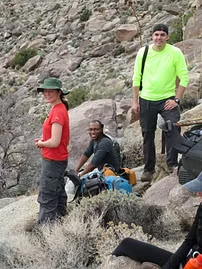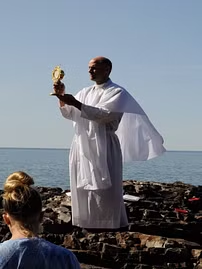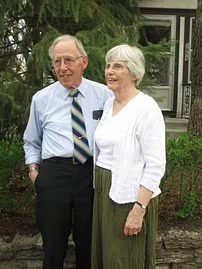




The Theology of the Body (shorthanded as “TOB” since the early 2000’s) is both a phrase and a reference to a book by St. John Paul II.
If you are seeking a definition of the phrase “theology of the body”, it simply means that our bodies teach us about God. Since we have been created as male and female in the image of God – and God is Love – then God created our body-soulness to show us something very concrete about how love is meant to be both given and received. It applies to every person – no matter what age or state in life – because we all have bodies that express our gift of self in ways that are as small as smiling at someone or as big as dying on the cross.
If you are wondering about the book St. John Paul II wrote, it is actually titled “Man and Woman He Created Them” and was written prior to his election as pope in 1978. Ultimately he delivered a little at a time through 129 Wednesday papal audiences over the course of 5 years. Each was printed in L’Osservatore Romano at the time, later being published in four volumes, then in one volume, then re-translated into the current volume by Michael Waldstein from the original Polish. Karol Wojtyla’s handwritten text also included several audiences on the Song of Songs that were undelivered but are now included in Waldstein’s translation.
The text dives deeply into the pope’s scripture-based meditations pertinent to our creation, goodness, and dignity as male and female persons, how God made us to give and receive love, our fallen tendencies, Christ’s call to live out our redemption, a glimpse into our destiny of heaven, and how both the Vocations of Celibacy and Marriage are meant to be fruitfully lived out in light of this teaching.
The result is a fresh vocabulary for understanding and speaking about who we are, why we are here, and the answers to life’s most challenging questions. Though St. John Paul’s text contains very dense theological and philosophical language, there are multiple resources that help to break it down into bite-size pieces and to apply it. Start exploring and don’t stop with one exposure to these teachings; they shed light on every part of this great story of which we are a part (Salvation History), every part of our humanity (personhood), and every moral issue raging in our culture today.
Dive in.
The Truth does not fear questions.
